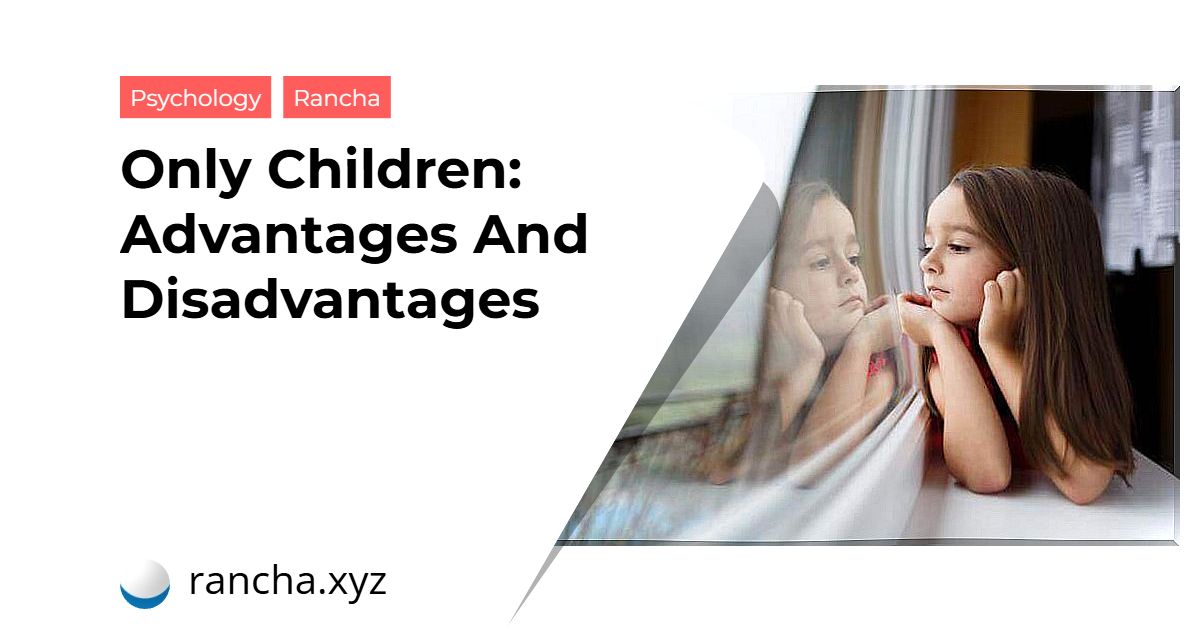There are several myths surrounding only children. Some of them have some kind of truth behind them, but not all. At the same time, more and more couples decide to have only one child, either for financial reasons or because they don’t have enough time to care for more children.
Of course, being an only child is not the same thing as growing up with siblings. The type of family in which the child grows up has a very strong influence on the creation of the personality. This is, however, neither good nor bad in and of itself. Having siblings doesn’t necessarily make you more sociable and supportive, and not having them doesn’t make you a little tyrant who is intractable.
What is fundamental in all cases is the style of rearing and the example that children receive at home. However, the most common is that only children end up developing some specific personality traits. There are advantages and disadvantages, just as there are benefits and harms to growing up with siblings. What is the difference? We will see below.
Parents of Only Children
Many wonder if parents of only children behave differently than parents of multiple children. The answer is yes. Even so, the fundamental question is not how many children the couple has, but the desire that existed in relation to the number of children.

First-time parents – and who will end up with only one child – who are not quite sure how best to play the role of parent, but who at the same time really want to have a child, will tend to be a little anxious about relation to child rearing.
It is possible that they consult many books and manuals for guidance. They are also likely to feel easily guilty for anything that doesn’t go as planned. The child will receive the full brunt of this tension and could become rigid in some way.
There are parents who consciously propose to have a child, but deep down they really didn’t want to become parents. The most common is that in these cases they end up delegating their child’s education to third parties. Maybe grandparents or a servant. The only child in this case will experience loneliness to a greater degree than usual, and it is possible that he will have difficulty in adulthood in forming emotional bonds.
Finally, someone who does not want to be a father but ends up having an only child, can still assimilate the situation in a positive way and lead the child’s upbringing in a natural way. Or, also, the child could become the exclusive recipient of all the consequences of this conflict in the adult’s life, a conflict between awareness of responsibility and desire. In this case, children often have a hard time finding their place in the world.
little adults
Dr. Toni Falbo of the University of Texas has studied the phenomenon of only children in depth. According to their conclusions, one of the effects of this situation is that children spend a great part of their time with adults only. That’s why they end up feeling more comfortable among adults and behave like them earlier.

As an effect of this situation, only children tend to see adults, and even their parents, as equals. They perceive this gap between generations in a different way. And then they can come to see all older people as their peers. This can cause them to be hard on themselves. They demand from themselves a maturity that should only be demanded of adults, or else they want autonomy and success incompatible with their age.
In contrast, Falbo states that only-children also tend to have greater self-esteem and greater self-confidence in themselves. It’s easier for them to understand what teachers and other authority figures expect, and they easily become leaders among people their own age.
teamwork and friends
Only children tend to have a little more difficulty adapting when doing group work. They are used to organizing things their way, and making decisions based on their individual issues. However, everything indicates that this difficulty only manifests itself in the first times that this type of work presents itself. The most common is that little by little they adapt and manage to integrate into the group.
There is also data indicating that only children tend to have fewer friends than those who grew up with siblings. They are not comfortable in large groups. They prefer to have some friends with whom the ties are quite deep. In fact, they end up establishing with their friends an attachment similar to what others establish with their siblings.

What can already be stated with greater precision is that only children have slightly different traits than children who have siblings. However, big differences only appear when parents have a problematic relationship with parenthood, for a variety of possible reasons. Otherwise, they have particularities that are not decisive.
 rancha.xyz Be free to choose their own route to self-knowledge, health and balance of body and soul.
rancha.xyz Be free to choose their own route to self-knowledge, health and balance of body and soul.




